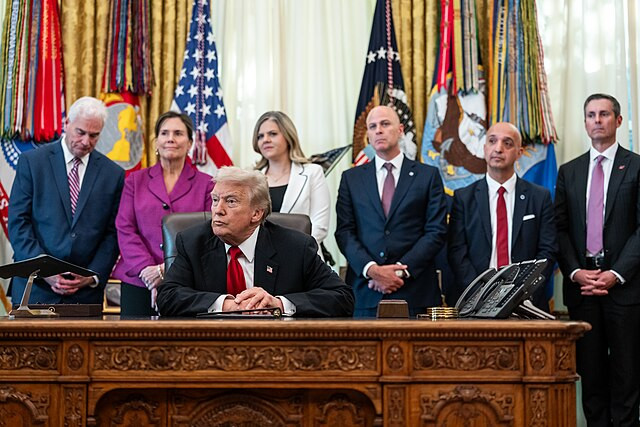President Donald Trump signed a bipartisan spending bill Wednesday night to officially end the longest federal government shutdown in U.S. history, concluding 43 days of political gridlock that left millions of Americans caught in the middle. The measure funds the government through January 30 and restores key programs disrupted for nearly seven weeks, but neither party emerged with a clear victory.
The House approved the bill 222-209 earlier in the day, sending it to the White House after the Senate passed it on Monday. The legislation reverses federal layoffs that occurred after October 1 and secures funding for food aid, veterans' services, and the legislative branch, among other agencies. However, Democrats failed to secure the Affordable Care Act tax credit extensions they had demanded, and Republicans-who hold unified control of Washington-absorbed much of the public backlash.
Before signing the bill, Trump told reporters, Shutting down the government is "no way to run a country. I hope we can all agree that the government should never be shut down again." Standing alongside him were several senior Republicans, including House Speaker Mike Johnson of Louisiana, who had helped broker the deal after weeks of stalled negotiations.
House Democrats, led by Minority Whip Katherine Clark of Massachusetts, opposed the Senate-brokered compromise, arguing that it ignored the looming expiration of enhanced health insurance subsidies. "The Senate-negotiated package does absolutely nothing to address the Republican health care crisis," Clark's office wrote in a whip notice circulated before the vote.
Despite the leadership's stance, six Democrats-Jared Golden of Maine, Adam Gray of California, Don Davis of North Carolina, Marie Gluesenkamp Perez of Washington, Tom Suozzi of New York, and Henry Cuellar of Texas-voted in favor of the deal. Two Republicans, Thomas Massie of Kentucky and Greg Steube of Florida, joined most Democrats in opposing it.
The bill's passage ended a standoff that began when Democrats insisted on renewing the Affordable Care Act's enhanced tax credits, which reduce premiums for millions of Americans. The credits, originally expanded under pandemic relief measures and the 2022 energy-and-health law, are set to expire at year's end. Without them, the Congressional Budget Office projects that premiums will more than double for many families and that over two million people could lose coverage entirely. "Never have American families faced a situation where their health care costs are set to double-double in the blink of an eye," Senate Majority Leader Chuck Schumer said.
Republicans rejected those demands, accusing Democrats of holding government funding "hostage." "Republicans are ready to sit down with Democrats just as soon as they stop holding the government hostage to their partisan demands," Senate Majority Leader John Thune of South Dakota said during the impasse. Thune ultimately promised Democrats a December vote on the tax credit extension, but the concession fell short of a guaranteed fix.
The 43-day shutdown inflicted wide-reaching damage. Federal workers missed multiple paychecks, airlines faced operational delays, and food assistance programs were interrupted, forcing families to line up at food banks nationwide. The Congressional Budget Office estimated the permanent economic loss at roughly $11 billion, despite expectations that most output would recover over time.
"This dysfunction is damaging enough to our constituents and economy here at home, but it also sends a dangerous message to the watching world," Sen. Jerry Moran, Republican of Kansas, said. "It demonstrates to our allies that we are an unreliable partner, and it signals to our adversaries that we can't work together to meet even the most fundamental responsibilities of Congress."
Public polling reflected similar frustration. A survey by the Associated Press-NORC Center for Public Affairs Research found that 59% of Americans blamed Trump and congressional Republicans for the shutdown, while 54% also held Democrats responsible. Nearly three-quarters of respondents said both parties shared at least "moderate" responsibility for the impasse.
Although the shutdown is over, political tensions remain raw. Some progressive Democrats have called for new party leadership following Schumer's decision to proceed with temporary funding instead of holding out for the ACA subsidy extension. Meanwhile, Trump has pressed Republicans to abolish the Senate filibuster altogether, removing the need for bipartisan cooperation in future spending fights.
The government will now remain open for less than two months, leaving lawmakers only a brief window to craft a long-term funding plan before the next deadline arrives.





